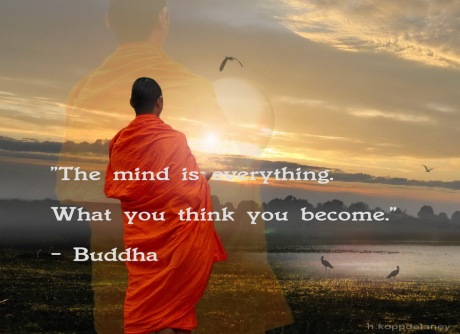Der Stress wächst, wenn Menschen auch außerhalb des Büros erreichbar sind.
Doch Psychologen erkennen in einer Meta-Studie auch positive Folgen.
Die Meinungen gehen auseinander:
Die Meinungen gehen auseinander:
Während im Arbeitsministerium laut über eine gesetzliche Regelung nachgedacht wird, die berufliche E-Mails und SMS nach Feierabend einschränkt, warnt das Institut für angewandte Arbeitswissenschaft (ifaa) davor.
Stephan Sandrock vom ifaa:
„Der derzeitige Stand der Forschung gibt keine Belege für eine mehrheitliche Überbelastung der Erwerbstätigen.“
Hilfreich seien „betriebsspezifische Lösungen, die nur der einzelne Betrieb definieren und umsetzen kann.“
Die wissenschaftlichen Erkenntnisse zum Thema sind, das zeigt die Diskussion, ziemlich offen für verschiedene Interpretationen.
Die Psychologen Barbara Pangert und Heinz Schüpbach von der Universität Freiburghaben jetzt für die Bundesanstalt für Arbeitsschutz und Arbeitsmedizin in einer Meta-studie die bisherigen Erkenntnisse zusammengetragen, über die das Portal wirtschaftspsychologie-aktuell.de berichtet.
Ergebnis:
Durch die Erreichbarkeit nehmen Belastung, Konflikte zwischen Arbeit und Freizeit sowie Stress zu, aber auch die Arbeitszufriedenheit nimmt offenbar leicht zu.
Die Autoren kommen zu dem Schluss, dass „man für die Mehrheit der deutschen Beschäftigten von einer erweiterten arbeitsbezogenen Erreichbarkeit sprechen kann“.
Das bedeutet, dass die Beschäftigten nicht rund um die Uhr, aber auch jenseits der regulären Arbeitszeit und des Arbeitsortes durch Smartphones für berufliche Angelegenheiten erreichbar sind.
Sie nehmen Bezug auf deutschlandweite Studien, etwa auf die oben genannte Befragung von 3090 Erwerbstätigen durch die DAK.
Demnach lesen etwa ein Viertel aller Beschäftigten einmal oder mehrmals in der Woche außerhalb der Arbeitszeit E-Mails. Rund 16 Prozent aller Beschäftigten werden einmal oder mehrmals in der Woche außerhalb der Arbeitszeit angerufen und 15 Prozent übernehmen sehr häufig oder oft in Ihrer Freizeit Aufgaben für ihr Unternehmen.
65 Prozent der Befragten sagen, dass sie E-Mails außerhalb der Arbeitszeit gar nicht belasten, 33 Prozent fühlen sich etwas, 2 Prozent erheblich belastet.
65 Prozent der Befragten sagen, dass sie E-Mails außerhalb der Arbeitszeit gar nicht belasten, 33 Prozent fühlen sich etwas, 2 Prozent erheblich belastet.
49 Prozent belasten Telefonate gar nicht, 46 Prozent etwas, 6 Prozent erheblich.
Neben den negativen Auswirkungen (unterbrochene Erholung, fehlende Planbarkeit) sehen viele auch positive Auswirkungen der Erreichbarkeit, zum Beispiel Flexibilität.
Aus 23 internationalen Studien zu den Folgen der Erreichbarkeit ziehen Pangert und Schüpbach folgende Schlüsse:
Je größer die erweiterte Erreichbarkeit, desto häufiger kommt es zu Konflikten zwischen Arbeit und Privatleben.
Je mehr erweiterte Erreichbarkeit, desto häufiger wird über Burnout, Stress, Nicht-abschalten-können und Schuldgefühle berichtet.
Je erweiterter die Erreichbarkeit, desto zufriedener, engagierter und leistungsfähiger beschreiben sich die Befragten. Allerdings ist dieser Zusammenhang schwächer als die beiden anderen.
Original Artikel: WIRTSCHAFTS WOCHE
----------------------------------------------
Studie:
von Daniel Rettig
Lesen Sie auch abends noch berufliche E-Mails?
Die Gefahr ständiger Erreichbarkeit
von Daniel Rettig
Lesen Sie auch abends noch berufliche E-Mails?
Das sollten Sie sein lassen. Laut einer neuen Studie gilt:
Wer sein Smartphone am Feierabend beruflich nutzt, schläft schlechter – und ist am nächsten Tag lustloser.
Die Meinungsforscher von Forsa befragten im vergangenen Jahr im Auftrag der Techniker Krankenkasse 1.000 Deutsche zu Ihrem Kommunikationsverhalten.
Etwa 21 Prozent der 46- bis 55-Jährigen gaben an, im Alltag ständig erreichbar zu sein.
Bei den 36- bis 45-Jährigen waren es 35 Prozent, bei den 18- bis 25-Jährigen sogar 87 Prozent.
Irgendwie verständlich.
Irgendwie verständlich.
Es ist schwierig, eintreffende SMS oder E-Mails komplett zu ignorieren. Wenn das Display neue Nachrichten anzeigt, siegt meist die Neugier auf den Inhalt. Auch am Feierabend oder am Wochenende.
Doch genau davor warnt nun der US-Wissenschaftler Christopher Barnes von der Universität von Washington:
„Wer sein Smartphone am Feierabend beruflich nutzt, ist am Arbeitsplatz müder und lustloser.“
Zu diesem Ergebnis gelangte Barnes in einer neuen Studie.
Zu diesem Ergebnis gelangte Barnes in einer neuen Studie.
Dafür befragte er zum einen 82 Führungskräfte im Alter zwischen 31 und 50, andererseits 161 Angestellte ohne Personalverantwortung.
Alle füllten zehn Tage lang einen Fragebogen aus.
Alle füllten zehn Tage lang einen Fragebogen aus.
Morgens um sechs Uhr gaben sie an, wie gut und lange sie in der Nacht zuvor geschlafen hatten, ob sie sich erschöpft fühlten und ob sie vor dem Einschlummern ihr Smartphone beruflich genutzt hatten. Nachmittags um 16 Uhr erstatteten sie Auskunft darüber, wie engagiert sie gerade bei der Arbeit waren.
Dabei entdeckte Barnes:
Dabei entdeckte Barnes:
Jene Angestellten, die ihr Smartphone abends und nachts beruflich nutzten, schliefen wesentlich schlechter.
Mehr noch:
Sie fühlten sich am nächsten Morgen auch wesentlich erschöpfter – und waren am folgenden Tag im Büro lustloser und weniger engagiert.
Ein Grund mehr, das Handy abends zu ignorieren – oder am besten gleich ganz auszuschalten.
Original Artikel: WIRTSCHAFTSWOCHE
Empfehlung von Business Doctors, Graz, Österreich
Gesund bleiben
Von der Arbeitsgesellschaft zur Dienstleistungsgesellschaft
Das sind Titel und Thema des 3. Symposiums, das von den Business Doctors im Rahmen des
„Europäischen Forums für generationengerechte und gesunde Arbeitswelten“
vom 16. bis zum 17 Oktober 2014
in der Friedensburg Schlaining abgehalten wird.
Ihr Ansprechpartner:
Wichtiger Hinweis:
TWITTER... Follow @PreventBurnout
BUSINESS DOCTORS NEWS!!
Gesund bleiben
Von der Arbeitsgesellschaft zur Dienstleistungsgesellschaft
Das sind Titel und Thema des 3. Symposiums, das von den Business Doctors im Rahmen des
„Europäischen Forums für generationengerechte und gesunde Arbeitswelten“
vom 16. bis zum 17 Oktober 2014
in der Friedensburg Schlaining abgehalten wird.
Top Referenten aus Wissenschaft, Wirtschaft und Politik setzen sich in Vorträgen und Workshops mit den durch diese kulturelle Revolution in unseren Arbeitswelten herbeigeführten Änderungen auseinander und geben Einblick in die neusten Erkenntnisse und Entwicklungen, insbesondere der Stress-und Burnout forschung, wie auch in die neuesten Methoden der Stress- und Burnoutprävention.
Erfolgreiche „Best Practice“ Beispiele runden das hochqualitative Programm ab.
::::::::::::::::::::
NEU!!!!
BUSINESS DOCTORS APP
IHR "STRESS & BURNOUT CHECK"
JETZT HIER - CLICK!!
DANKE!!
Informationen:
Zahlen, Daten und Fakten zu den berufsgruppenspezifischen Stress – und Burnoutstudien, Leistungseinbußen durch Stress, etc. sowie Infos zur BIS Business Intelligence Software mit dem Einsparungspotentialrechner sind unter www.business-doctors.at abrufbar.
Die Business Doctors Kostenfreie „Stress & Burnout Check“ APP für Android User ist im Google Play Store unter dem Suchbegriff „businessdoctors“ frei zum info-download.
Ihr Ansprechpartner:
Franz Daublebsky,Tel. 0664 / 101 2333
Wichtiger Hinweis:
Diese Seite enthält nur allgemeine Hinweise und Sie kann einen Arztbesuch nicht ersetzen. Die Beantwortung individueller Fragen durch unsere Experten:
Email: office@business-doctors.at
Email: office@business-doctors.at
TWITTER... Follow @PreventBurnout

















































